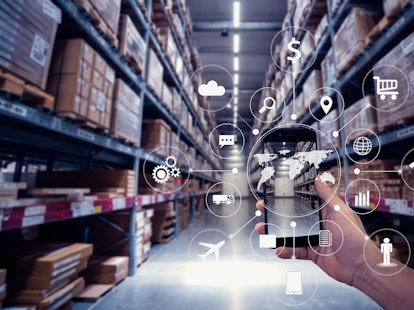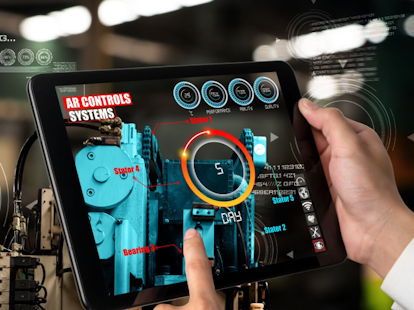Decoupling/de-risking is a major trend in global trade. However, in reality, full decoupling is impractical and recent World Trade Organization (WTO) figures show a 13% year-on-year rise in global trade. 1Our continuing reliance on import/export markets provides trade scammers with multiple opportunities to defraud governments.
A familiar story
Imagine this: a mine operator in country X needs high-quality generators to continue operations, so they go to a known seller in the same country. The seller then orders the generators from a reliable manufacturer in country Y for a total price of USD 150,000 FOB (free on board) and a shipper in country Y leases three containers to transport the generators to country X. This all seems to be going well, with the manufacturer, shipper and seller all fulfilling their part of the contract and the mine operator able to continue operations.
However, the authorities were not aware that the shipper leased the containers to avoid tracking and had concealed counterfeit cigarettes in each of the containers, which were then recovered covertly by handlers at the terminal and sold onto the black market. At the same time, the seller imported the generators at a lower price by falsifying the manufacturer’s invoice and under-declaring the FOB value at 50% less to customs. This means the government has lost around USD 50,000 in tax revenue from the falsified invoices and possibly ten times that from the smuggled cigarettes.
Governments need an effective and efficient process for detecting fraudulent practices such as mis-invoicing and illicit trade transactions to protect tax revenue.
How to identify the true import value of a shipment
Part of the problem is global trade’s reliance on paper. An estimated four billion paper documents relating to global cargo trade are in circulation at any one time. This not only slows down international trade – the average processing time for paper-based documentation through all trade transaction stakeholders is 16.4 hours – but it also gives trade scammers multiple avenues for defrauding governments. 2
Digitalization speeds up the process of transferring documents between trade stakeholders and facilitates the detection of potential fraudulent practices by government authorities. The declared value of an imported good can be instantly cross-referenced against an up-to-date database of prevailing international prices for similar or identical goods delivered under the same circumstances. To be effective, the database must include data taken from market research, quotations and real cross-border transactions and it should be regularly updated to ensure the reference processes are trusted and reflect current export market prices and international freight rates.
The system used by the customs authority needs to be capable of automatically evaluating the declared values of all cross-border trade transactions against the information on that database in real time. If a trade transaction is identified as suspicious in terms of over or under-invoicing, it can then be red-flagged for further investigation by on-the-ground customs officials.
A truly effective system would also be capable of identifying suspicious information submitted on transportation documents at the pre-arrival level, which could indicate smuggling. An example of this would be the three leased containers containing the generators but also filled with smuggled cigarettes.
Focus on high-risk consignments with SGS e-Valuator
SGS e-Valuator is a fully automated trade valuation system that seamlessly interfaces with a country’s customs management system. It utilizes a regularly updated database containing accurate price references drawn from validated transactional and non-transactional data. The system automatically compares declared values against reference prices for both goods and freight costs. Then, using a sophisticated risk model, it identifies high-risk trade transactions and alerts the authorities.
SGS e-Valuator instantly identifies the declared value for the generators as being below the prevailing international prices for such equipment and alert the customs authority’s valuation department. It would also identify the containers as suspicious and flag them for further investigation.
This cost-effective, digitalized solution lets governments automatically assess all trade transactions and enables the accurate targeting of suspicious consignments, thereby reducing costs and increasing success rates. The system is fully compatible with WTO obligations and is the simple solution for increasing traceability in trade transactions while reducing valuation and fraud risks.
At the end of the day, SGS e-Valuator is the optimal solution for combating fraud and ensuring governments receive all legally owed duties.
Find out more about SGS e-Valuator.
Enjoyed this article?
Find more news and updates in our Consumer Compact newsletter >
Delivered direct to your inbox
Subscribe to Consumer Compact >
References
1 Economic decoupling? 3 experts caution what that means for the global economy & World Trade Statistical Review 2023
2 4 Billion Pieces of Paper Keep Global Trade Afloat but Fraud Fuels Push to Digitize
© SGS Société Générale de Surveillance SA.






